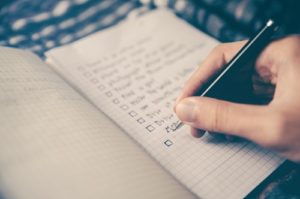Third Act With Ed Southern (’94): Tips For Finding Your Writer’s Voice
By Ed Southern (’94)
Ed Southern is in his tenth year as Executive Director of the North Carolina Writers’ Network, a statewide organization dedicated to connecting, educating, promoting, and leading writers in all genres, at all levels of skill and experience. This guest post is a feature of the type of content offered at Camp Third Act, a new signature program to help you contemplate the “third act” of your life. This event is designed to guide you to identify, and reach, goals for your best life. Learn more at thirdact.alumni.wfu.edu.
I once read an interview with a Famous Poet, in which he said, “In order to write poetry, you must read poetry out loud for an hour every day.”
To which I wanted to reply, “No, in order to write poetry, YOU must read poetry out loud for an hour every day,” unless you can prove to me that Shakespeare, Wordsworth, William Butler Yeats, Emily Dickinson, Sappho, Basho, Seamus Heaney, Elizabeth Bishop, and Jose Marti all read poetry, out loud, for one solid hour, every single day.
Otherwise, I’m calling bull on that one, no matter how famous the poet who said it.
In fact, most of the rules and instructions for writing I’ve encountered are bull, with two important exceptions. The first exception is this: in order to write—or, more precisely, in order to write well—you must read.
“Read, read, read,” William Faulkner (who, incidentally, wrote terrible poetry) said. “Read everything—trash, classics, good and bad, and see how they do it. Just like a carpenter who works as an apprentice and studies the master. Read! You’ll absorb it. Then write.”
And there’s the second exception: In order to write, you must write. That sounds reductive, if not downright simple-minded, but you’d be surprised how many would-be writers never quite get the hang of this one essential, non-negotiable rule.
How you go about writing is up to you. Wake before dawn or burn the midnight oil; squirreled away in your attic or study, or at your favorite table in your favorite coffee shop, café, or bar; standing or pacing or hunched over a desk; hammering away at your keyboard, or in your terrible, chicken-scratch longhand, with a blue-ink pen, onto a yellow spiral-bound legal pad.
You may even choose to write only after reading poetry out loud for an hour every day.
At Camp Third Act we’ll talk about writing as art and as craft, as study and as practice, as calling and as hobby. We’ll discuss habits and techniques that you might decide to try, or might decide to reject in favor of your own habits and techniques. We’ll plot maps and courses to help you find your own writers’ voice, wherever it might be.

